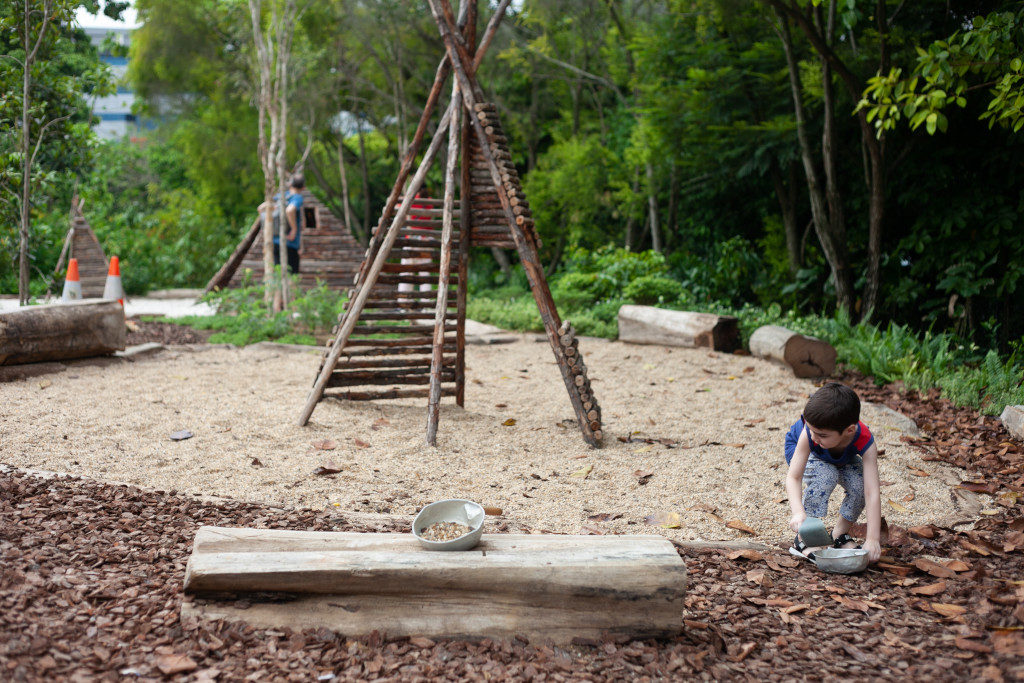Integrating nature into play areas
Replacing traditional playgrounds with natural ones have been becoming a trend in order to cultivate children’s environmental identity. Although traditional playgrounds are more visually appealing with its colourful appearance, natural playgrounds are now the preferred choice for children to play in due to its many benefits.
Public areas
Public parks in Singapore such as Singapore Botanical Gardens, Hort Park and Jurong Lake Gardens have been changing up their playgrounds, implementing natural playgrounds instead of traditional typical ones. They are built to look similar to natural elements, consisting of amenities such as tree logs, wood planks, shrubs, leaves and sand. Children who play there come into close contact with these unconventional structures, creating a novel playground experience.


Schools
There is an increased number of schools that introduces nature school programs as it boosts their creativity and imaginative skills. Rather than teaching environmental values and meanings in an indoor classroom, children who are directly in contact with the environment would learn more intrinsically. Their environmental identities will be cultivated naturally rather than traditionally taught, making it stronger.
Examples:
The Garden House Preschool in Singapore integrates nature play into curriculum for children aged 18 months to 6 years old. Nature is prioritized as an educational tool here as children will be able to do gardening, sensory play in nature and outdoor play on top of typical activities. Another example of such schools would be the Nature Explore School. As their philosophy goes:
‘We let children take the lead to solve nature-based challenges and ask open-ended questions to encourage creative solutions. By igniting their curiosity and playing to their strengths, children gain confidence and develop an overall positive outlook of life.’
The school pedagogy works through regular interactions with nature, where each session lasts for 2.5 hours. Activities for the children include outdoor cooking, fire starting, building dens and learning about flora and fauna.
